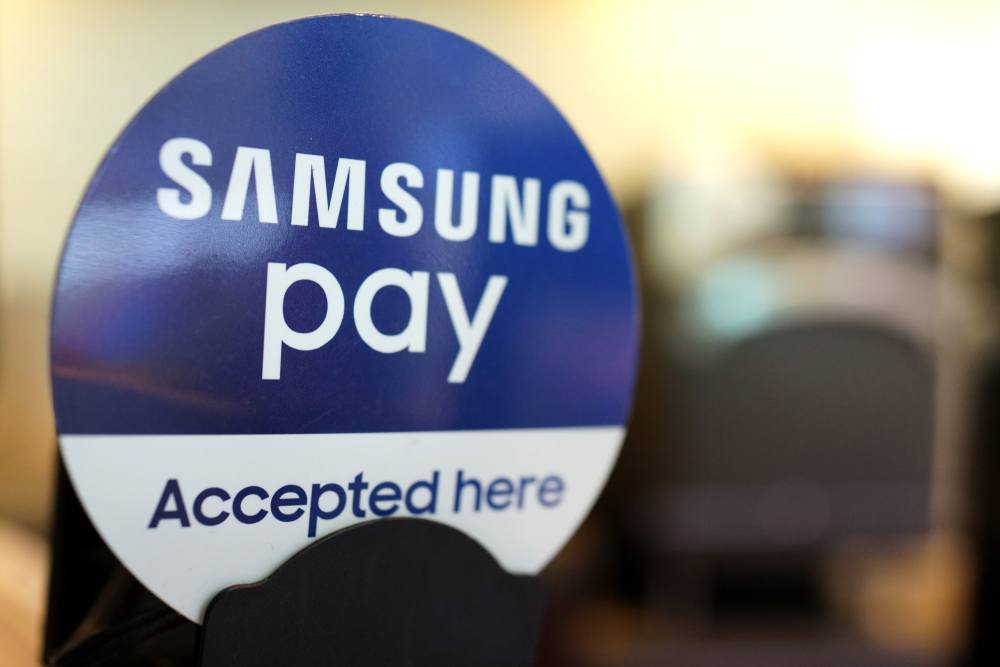Samsung Pay May Integrate Crypto on Millions of Smartphones, Starting With the Galaxy S10 – What’s the Realistic Impact?

Samsung's unique all-terminals payments tech, Samsung Pay, could soon host a crypto wallet. | Source: Shutterstock
According to a report from The Korea Herald, a mainstream media publication based in South Korea, Samsung Pay could integrate crypto into the Samsung Galaxy S10.
Earlier this month, CCN.com reported that the potential development of a crypto wallet by Samsung and the Galaxy S10 development team was leaked by an insider.
New reports suggest that Samsung will bring crypto into its ecosystem through Samsung Pay, its flagship digital payments platform.
What Effect Could Samsung Pay Have on Crypto?
In late 2018, MK reported that Samsung Pay has more than 10 million users in South Korea alone that utilize the application to settle day-to-day payments.
With Kakao’s KakaoPay, Samsung Pay dominates the country’s digital payment sector, partly due to its $200 million acquisition of LoopPay, which allowed Samsung Pay to use its magnetic secure transmission (MST) technology, an alternative to NFC that is used by Apple Pay and KakaoPay.
Speaking to The Korea Herald, an industry official said that the integration of a crypto wallet by Samsung and Samsung Pay could lead to the mainstream adoption of cryptocurrencies in the local market.
The official said:
The arrival of the new Samsung phones could start popularization of the cryptocurrency wallet system in Korea.
Since mid-2018, Samsung, South Korea’s largest conglomerate, has shown interest in the utilization of cryptocurrencies in commerce.
A report released by Samsung Insights previously emphasized that mobile devices are typically more secure in storing cryptocurrencies due to the presence of a Trusted Execution Environment (TEE).
On PCs or desktops, private keys to wallet addresses are stored in the same memory as the operating system. As such, in an event of a hacking attack, a hacker could easily gain access to the data.
Joel Snyder at Samsung Insights explained :
If a wallet stores the private keys on a normal persistent store (such as a hard disk or SSD), whether on a standard Windows PC or in a smartphone, a bit of malware can easily get access to them. If those private keys are in the TEE and only accessible via a trustlet, there’s no possible way the malware can extract the keys directly.
Historically, Samsung has tended to focus on markets which it can reasonably penetrate into with minimum resources and capital using their existing infrastructure.
“Cryptocurrency users may not pay much attention to the mechanics of how their coins are stored, but that can be a dangerous attitude to have. Picking a dependable cryptocurrency wallet is an important part of using cryptocurrencies safely,” Snyder said.
The integration of a cryptocurrency wallet into the Galaxy S10 could demonstrate the security of its TEE and software like Knox to a new group of users.
If Samsung Pay is involved in the process and cryptocurrencies are integrated into the fintech application, it also provides an edge over its competitors in Asia such as KakaoPay and AliPay.
A Win-Win Integration
Although Samsung has not released an official statement regarding the rumors of a potential crypto wallet launch, every company and market involved in the development benefits from it and the deal makes sense for the conglomerate.
Samsung will appeal to millennial users who perceive cryptocurrencies as an efficient and alternative means of payment method over traditional systems, and cryptocurrency users will benefit from a native app that prioritizes security.
KakaoPay has been working with UPbit, a cryptocurrency exchange owned by Dunamu, a company invested by Kakao, to provide support to the trading platform.
With two of the largest digital payment applications in South Korea experimenting with cryptocurrencies in different ways, in the long run, industry experts foresee the infrastructure supporting cryptocurrencies to improve significantly.